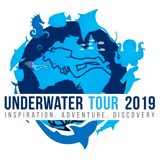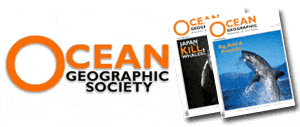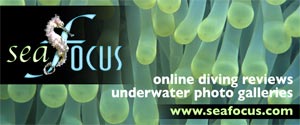
Queensland fishing culture is 'old school'
It's a subject of minor interest to Queensland's well-heeled city-set. But even politicians were startled and inspired by the small, nuggetty man in joggers and t-shirt who spoke at the State Library of Queensland last week.
Last Friday night, acclaimed Western Australian author Tim Winton held a hushed gathering of over 200 ocean wardens, art aficionados and Queensland politicians, spellbound.
Patron of the Australian Marine Conservation Society, Tim was asked to speak at their inaugural art auction. In his speach, Winton fearlessly weighed in on a tide of controversy, tackling well-known Queensland "cultural inertia" and partisan fishing industry notions, with particular regard to Moreton Bay zoning issues that in the last few weeks have sparked fierce debate.
Winton said much public comment had been mischievous.
"The widely held concept of 'no fishing' or 'no go zones' in Moreton Bay is an irrational meltdown, a strange conspiracy conceived by hard core extremists with endless demands."
"The Beattie government must stiffen its resolve against those who don't necessarily represent everyone's interests. This is not about the end of fishing [on Moreton Bay]. It is about logic. Only the pressure of logic can prevail against rank paranoia."
Winton was self-deprecating and refreshingly honest.
"I'm not on a sentimental mission. I've killed many marine species and I'm hard-wired to hunting and gathering. But I'm not a complete idiot,"he said.
"I read like anyone else, I have my eyes open like anyone else. And I have witnessed the steady decline of iconic [marine] species."
"90 per cent of big predatory fish are gone in the world's oceans. And industrial fleets are grinding away at the remainder".
Winton was baffled by Queensland fishing attitudes.
"This is a wealthy, stylish, enlightened state. I am puzzled by the local problems."
"What is it about fish that makes them shoot-able," he said.
"Why do conservationists become extremists while irresponsible, old vested interests are routine? That does not bring about mature debate, but it is depressingly familiar."
Beattie government state parliamentary secretary for the environment Michael Choi attended the Marine Art Auction. He said it was critical to resolve issues surrounding the Park's future.
"This event highlights the urgency to ensure the survival of a Queensland icon. The government is concerned about protecting the Bay. However, there are conflicting demands for use of Moreton Bay, and they need to be considered," he said.
Member for Indooroopilly and parliamentary secretary to the minister for communities Ronan Lee MP who also attended, did not mince words.
"We fish it, we kill it, we eat it, or we are sensible. This matter must be resolved fairly. There is no choice. We are exploiting a resource with no thought to consequence," he said.
Queensland Conservation Council secretary Simon Baltais said it was surprising how many Queenslanders had not visited Moreton Bay.
"So many people have not been to Moreton Bay. There are coral reefs and bottle-nosed dolphins, there is an amazing array of sea creatures. It"s different every day. Economically and socially it's worth billions," he said.
"But there are dangers. We could be loving it to death."
Contributed by Loretta Ranieri added 2007-08-27
Replies of 2
- PhillipB added 2007-10-07
Yes he has a way with words. Never mind though that people with impeccable qualifications (ie professors of fisheries) have questioned the benifits of MPA's and been scathing of the so called science used to justify them.
It was also not too honest to cite the worst examples of overfishing from overseas waters and applying them to our waters when we have the most regulated and least exploited fishery in the world. The 90% figure regarding depletion of big predatory fish is also highly doubful by the way.
- PhillipB added 2007-12-22
Reagarding the 90% depletion figure. I don't suppose Winton knows about this:
From "Faith Based Fisheries" by Ray Hilborn Professor of fisheries Washington University.
Myers and Worm published a paper in Nature (Myers and Worm 2003) which made the front page of major national newspapers, purporting to show that large pelagic fish stocks around the world had declined rapidly and by the 1980s were at less than 10% of their historic abundance. Widely cited in the scientific and popular literature, this paper raised a furor among many scientists specializing in pelagic fisheries who knew the same data, knew it was being misinterpreted, and knew there was a large body of other data that contradicted Myers and Worm’s results. At least three independent critiques of the paper subsequently have been published: Walters (2003), Hampton et al. (2005), and Polacheck (2006). The critics are not the “old guard defending their turf,” because it is not as if no one had noticed that the catch-per-unit effort data Myers and Worm used had declined. Rather these critics have themselves long been arguing that some of these fisheries are now depleted and overfished. What they criticized was Myers and Worm’s analysis, their highly selective use of data, and specific conclusions about the extent and timing of depletion of these stocks, not their concern about overexploitation.
Replies of 2
![]() Login or become a member to join in with this discussion.
Login or become a member to join in with this discussion.

 Local Dive Thailand
Local Dive Thailand
Phuket's local scuba diving experts. A great blend of Thai local knowledge and European professionalism that equals a superb dive experience with the most knowledgeable guides and instructors
Articles
-
 Book Review -The Diving Almanac & Yearbook 2007
Book Review -The Diving Almanac & Yearbook 2007
- Looking up the definition of almanac I found one that probably wraps up this book in one sentence: A publication, usually an annual, containing useful facts and statistical information ...






